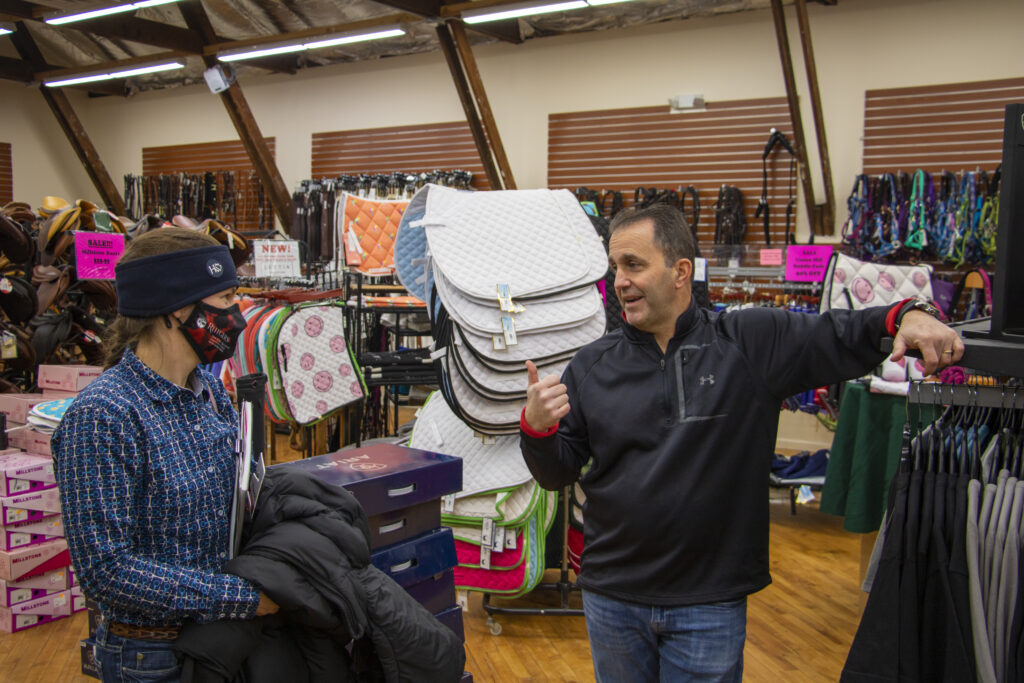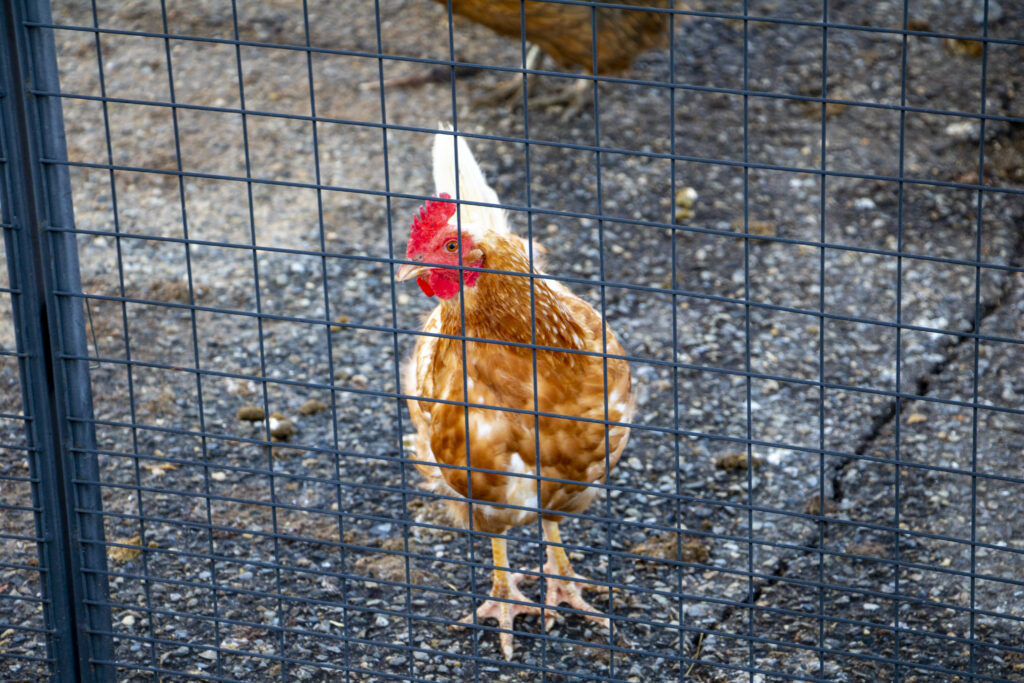Career: Tack Shop Owner
Hay Everyone!
I’m excited to be bringing you the latest post in my careers in the equine industry series! Are you ready for another inside look at a career? I certainly hope so because I can’t wait to share all my new insights with you. This week I talked to Mr. Mike Conforth, who is responsible for the daily management of Rick’s Saddle Shop, a tack, feed, and equipment supplier with locations in New Jersey and Pennsylvania. As a business, they employ approximately forty people.
Keep reading to hear more from Mr. Conforth!
Lord Nelson (LN): What does your typical day at work look like?
Mr. Conforth (Mr. C): A typical day for me lately, since COVID happened, has been basically staying at the Englishtown location just because we’re shorthanded. Other than that, a typical day can be anything. I come in, make sure the staff has directions, so they know what they’re doing all day, and everyone has a job assigned. Then once that’s taken care of, I focus on a lot of the big picture stuff. The stuff that’s going to happen a year from now, five years from now, ten years from now. I work with the banks, the accountants, and the vendors. So, there’s a little bit of everything in a typical day.
LN: What is your favorite part of the job?
Mr. C: My favorite part of the job is I can do whatever I want to do. I’m restricted a little bit because I have to do things, but my favorite part is not having to answer to anyone.
LN: What is your least favorite part of the job?
Mr. C: My least favorite part is probably dealing with staff issues because that’s the most cumbersome part of the job. It’s not that I don’t like the staff. I enjoy the staff and I enjoy the staff here. It’s just seems that a lot of it is a waste of time where I could be spending that time in a more productive way.
LN: If someone were considering a similar career path, what advice would you offer to them?
Mr. C: I think you have to have the passion for it. You have to be a self-starter. You have to be a person that takes a project from conception to finish. You can’t skimp anywhere in-between because, especially when you’re starting out, there’s no one there to help you. You have to figure it out from the beginning to the end. It’s not like you can do a project half-way and then hand it off to someone and it gets done. It doesn’t get done. I think you have to be content with that and realize that although you’re working for yourself, you’re really not. If somebody doesn’t show up there’s no other person that’s going to take on that responsibility, but you. Everyone thinks every job is easy. When you look at anyone doing a job, you say “Well, that’s easy. I could do that job.” It’s never that easy, though. Until you get there and experience it and you know what it’s all about, it’s never easy.

Mr. Conforth in the Englishtown store location.
LN: What is your most memorable or favorite memory from your career?
Mr. C: It’s probably the people that have come and gone over the years. Some of them have stayed. We have several people that have been here twenty plus years. I think it’s the people. The people I’ve gotten a chance to work with. That’s the most memorable part of it.
LN: What made you decide to pursue a career as a tack store operator?
Mr. C: I kind of fell into it and learned along the way. When I got out of school, I went to work for Purina doing on the road sales, calling on farms, dealing with the horse people. Then it morphed into this and it has been this for thirty some years.
LN: Did the business start out small and how did it grow?
Mr. C: My father-in-law started this business in 1978 by renting a beauty shop on Water Street in Englishtown and eventually buying it. Then we got the Cream Ridge store in 1983. I started here in 1989. Then we got another store in Englishtown. Then another one in Pennsylvania. Then we tore down the store in Cream Ridge and built the store that’s there now. Which is where we’re at now. It always starts small because I think that’s the only way it can start unless you’re going to go and get money from an investment firm or something like that. This business is so small it’s not that way. It’s a niche business.
LN: What is your educational background and how has that helped you in your career?
Mr. C: I went to Westchester University for a degree in business and right out of Westchester I started working for Purina. There’s no doubt my degree has helped me. I have this conversation with my wife all the time. I do work with a lot of people here that didn’t go to college and some who did. I can see a difference. I think it teaches you structure, it teaches you organization, it teaches you problem-solving skills. I think it’s helpful. I think it’s more expensive, but it’s helpful.

One of the resident chickens which the staff learns to care for.
LN: Are there any last thoughts you’d like to leave our readers with?
Mr. C: I think a lot of people have a fantasy of I want to work for myself, I want to go into business for myself. I don’t think they realize there’s usually a big struggle to get to a successful point and that everyone you see that is a successful business owner or entrepreneur or whatever they are, has worked really smart and worked really hard at it. I don’t think anyone is lucky in life. I think people think it’s easy, but it’s not. You really have to persevere with it, you have to stick with it, and there are a lot of down times and some good times, too. The down times are what really mold you and makes you into a better person and business person, especially with what’s been going on for the past two years with COVID. It’s been a struggle. It was a huge struggle for that first six months. I didn’t know if we were going to be here.
LN: Thanks for taking the time to chat with me and share your insights, Mr. Conforth!
Mr. C: It’s been my pleasure, Lord Nelson. I hope this is helpful!
Whew, being a business owner sounds like a lot of hard work. I’m not sure I would be up for it. I might not have enough time each day for doughnut munching. Being a business owner does sound very rewarding, for those that do put in the work and can be successful, though. What do you think? Do you want to consider becoming a tack shop owner or running your own business? I’ll leave you to ponder that question until my next blog post comes out.
Until Next Time.
Your Friend,

Lord Nelson
